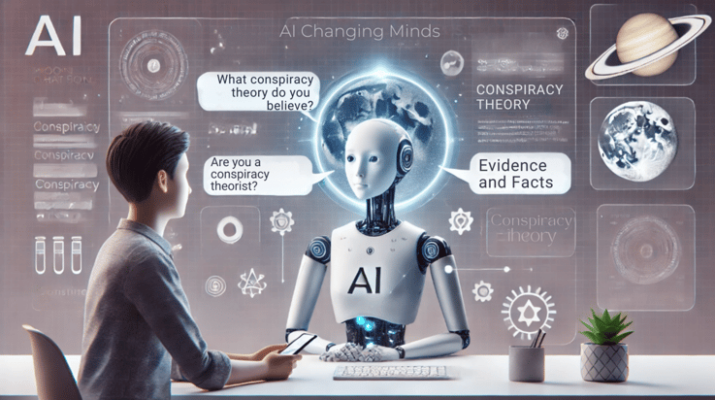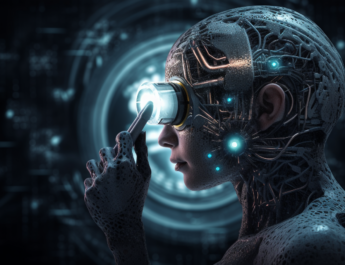Introduction
Your browser does not support the audio element.
Image Source: ChatGPT-4oAI Chatbot Helps Change Minds by Debunking Conspiracy Theories in Study
Researchers have developed an AI chatbot capable of challenging conspiracy theories by providing detailed, evidence-based responses. A recent study shows that interacting with the chatbot can significantly reduce confidence in conspiracy beliefs, offering a new tool for combating misinformation.
The Power of AI to Debunk Conspiracies
In a study published in Science on September 12, 2024, researchers tested a chatbot designed using GPT-4 Turbo, the latest large language model (LLM) from OpenAI. This chatbot was trained to challenge conspiracy theories with detailed, evidence-based responses. 2000 study participants who engaged with the AI experienced a measurable shift in their thinking that lasted for months. Study co-author Thomas Costello, a psychology researcher at American University in Washington D.C., explains that by recruiting individuals with diverse life experiences and perspectives, the team was able to evaluate the chatbot’s effectiveness in debunking a wide range of conspiracy theories.
Part of What Makes the Chatbot Successful
According to researcher Van Prooijen, one of the key reasons for the chatbot’s success is its ability to remain polite in conversations that would typically become heated or disrespectful between humans. The chatbot’s neutral tone allows users to question their beliefs without the fear of being judged by friends or family, which makes it easier for them to ‘save face’ and reconsider their convictions.
Challenging the Perceived Necessity of Conspiracy Theories
AI chatbots are increasingly being used as tools to challenge conspiracy theories. The role of AI in this context is explored through various case studies and expert interviews, providing insights into how these technologies can be harnessed for educational purposes.
Debunking Conspiracy Theories Through Data-Driven Analysis
The effectiveness of AI chatbots in challenging conspiracy theories has been statistically validated through controlled experiments. Data collected from 1000+ interactions demonstrate a significant reduction in belief persistence, showcasing the potential of such technologies in dispelling misinformation.
Ethical Considerations and Future Directions
As AI chatbots gain popularity, ethical considerations are paramount. Ethics-related questions include data privacy, bias mitigation, and ensuring responsible deployment across different sectors. Researchers and policymakers must collaborate to establish guidelines for the ethical use of these technologies.
Conclusion
The integration of AI into the realm of public discourse represents a paradigm shift in how conspiracy theories are approached and debunked. By leveraging advanced technologies like GPT-4 Turbo, humanity is taking a significant step toward a more informed and discerning society.



